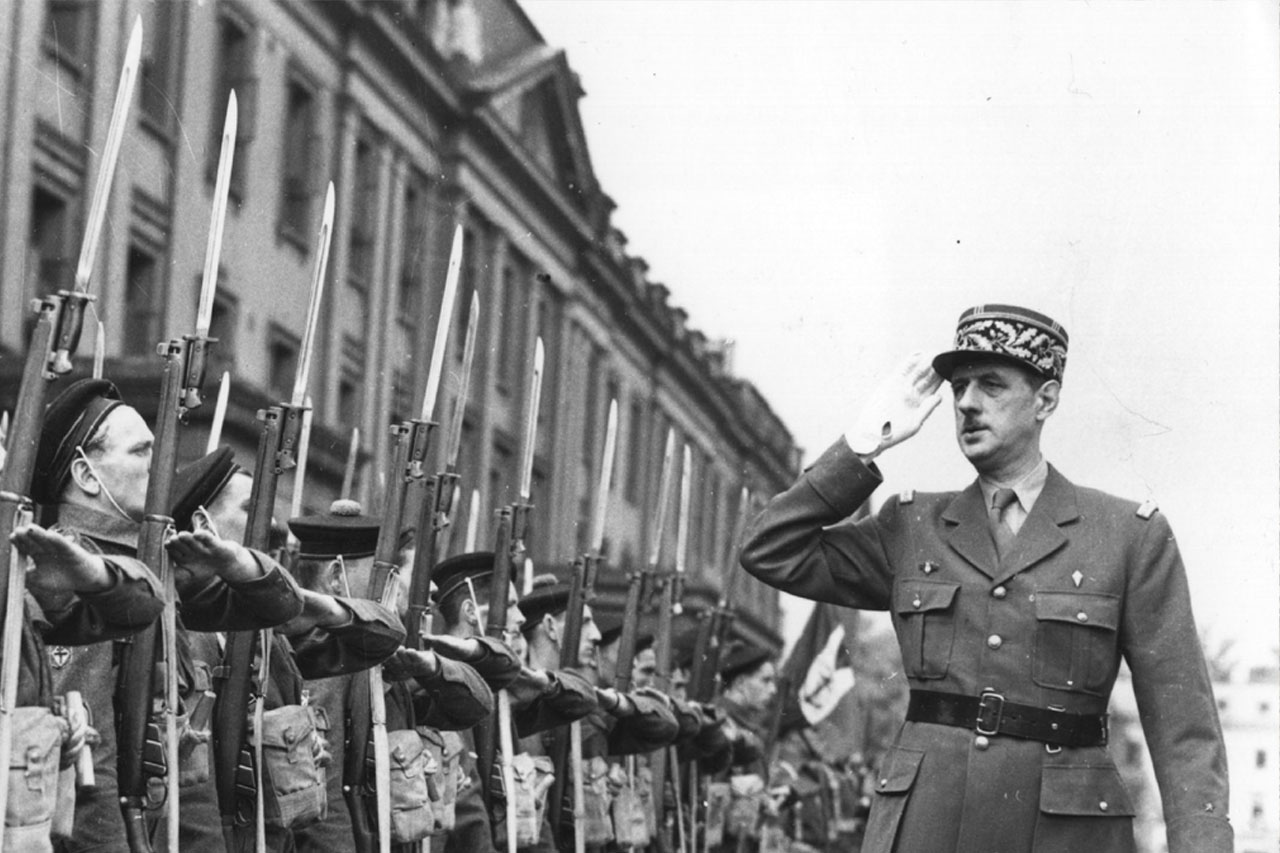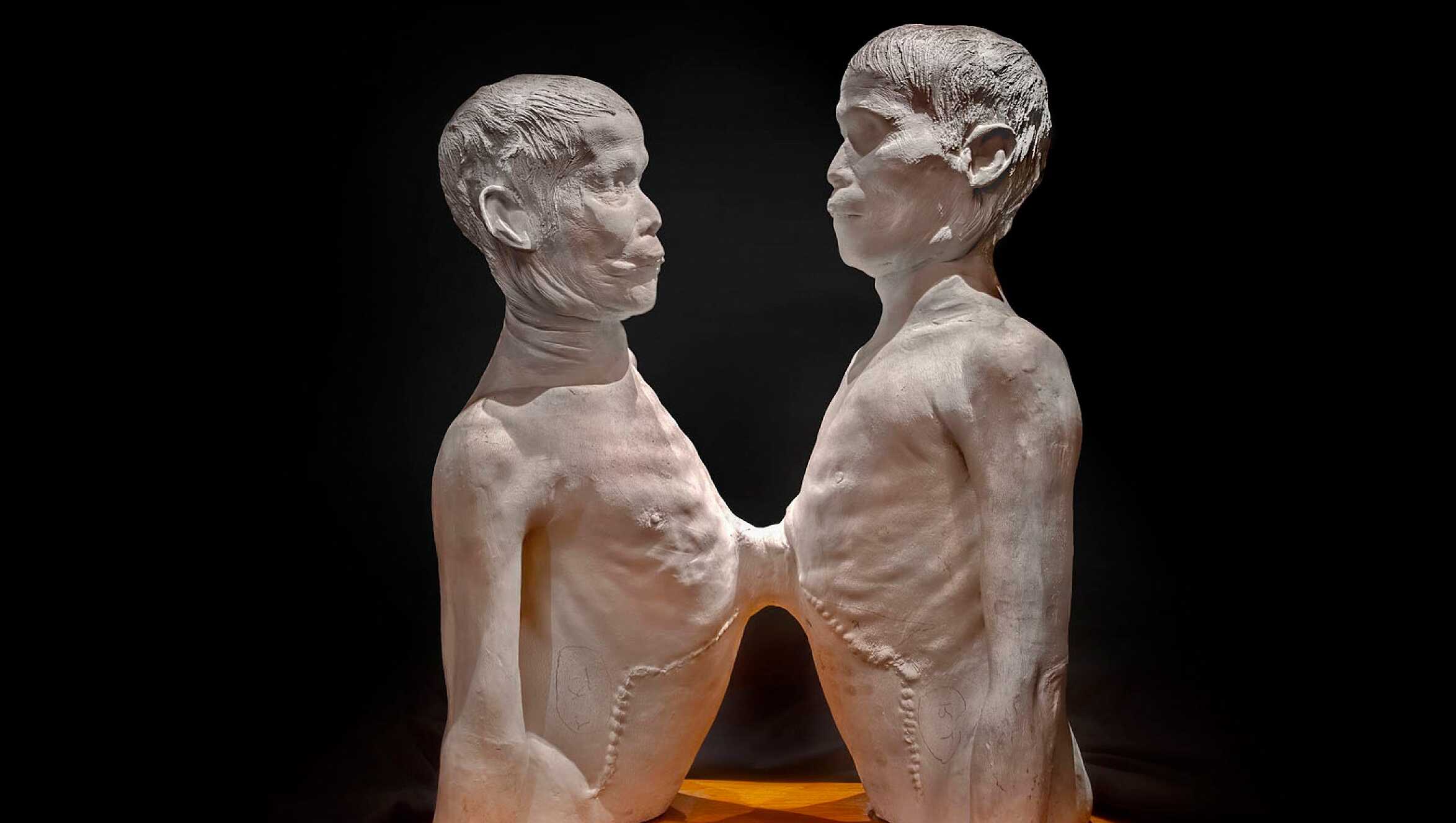
Who was Charles de Gaulle? Charles de Gaulle was a towering figure in French history, known for his military leadership and political influence. Born on November 22, 1890, in Lille, France, he rose from a modest background to become a key player during World War II and the post-war era. De Gaulle's journey from a young cadet at Saint-Cyr to the leader of the Free French Forces showcased his resilience and strategic mind. His famous June 18, 1940, radio address from London inspired a nation to resist Nazi occupation. Later, as the first president of the Fifth Republic, he implemented significant reforms and established France as a nuclear power.
Key Takeaways:
- Charles de Gaulle's early life and education shaped his strong nationalist and conservative values, leading him to excel academically and undergo rigorous military training at France's top military academy.
- De Gaulle's leadership during World War II and his presidency of the Fifth Republic left an indelible mark on France and the world, emphasizing French independence, national sovereignty, and a strong military.
Early Life and Education
Charles de Gaulle's journey began in a modest French household, but his path would lead him to become one of the most influential figures in French history.
-
Birth and Early Life: Born on November 22, 1890, in Lille, France, Charles de Gaulle came from a family of modest means. His father, Henri, was a philosophy and literature professor, while his mother, Jeanne, was a devout Catholic.
-
Family Background: De Gaulle's family was deeply rooted in French culture and Catholicism, instilling in him strong nationalist and conservative values from a young age.
-
Education: He attended the prestigious Collège Stanislas de Paris, excelling academically. In 1909, he enrolled in the École Spéciale Militaire de Saint-Cyr, France's top military academy.
-
Military Training: At Saint-Cyr, de Gaulle underwent rigorous military training, preparing him for a career in the French Army. He graduated in 1912 and joined an infantry regiment commanded by Colonel Philippe Pétain.
Military Career and World War I
De Gaulle's early military career was marked by bravery and resilience, setting the stage for his future leadership.
-
World War I: During World War I, de Gaulle distinguished himself on the battlefield, earning the Croix de Guerre for bravery. He was wounded twice and fought in the Battle of Verdun, one of history's bloodiest battles.
-
Prisoner of War: Captured by German forces during the Battle of Verdun, de Gaulle spent time in German POW camps. Despite being a prisoner, he attempted to escape five times, showing his determination and resilience.
-
Post-War Career: After the war, de Gaulle continued his military career, attending the École Supérieure de Guerre to study strategy and tactics. He also worked closely with Colonel Pétain, who became a mentor.
-
Military Theorist: De Gaulle was a prolific military theorist. His book "Vers l'armée de métier" (1932) advocated for a professional, mechanized army. Though initially ignored by French officials, it was studied by the German military.
Interwar Period and Predictions
During the interwar period, de Gaulle's insights and predictions about future conflicts were largely ignored, but they would later prove prophetic.
-
Interwar Period: De Gaulle served in various roles, including as a member of the French Supreme War Council. He also gained international experience in Germany and the Middle East.
-
Pre-War Predictions: De Gaulle was one of the few military leaders who predicted another war with Germany. His warnings were largely ignored but later proved accurate.
Leadership During World War II
De Gaulle's leadership during World War II was crucial in rallying the French Resistance and shaping the future of France.
-
World War II: At the outbreak of World War II, de Gaulle was a brigadier general. He opposed the French government's decision to surrender to Germany and formed the Free French Forces (FFL) in Britain.
-
June 1940 Radio Address: On June 18, 1940, de Gaulle delivered a famous radio address from London, urging the French to continue fighting against Nazi Germany. He declared, "France has lost a battle, but France has not lost the war".
-
Leadership in Exile: As the leader of the Free French Forces, de Gaulle played a crucial role in rallying support for the French Resistance. He worked closely with British and American leaders, including Winston Churchill and Franklin D. Roosevelt.
-
Military Campaigns: De Gaulle participated in key military campaigns, including the North African campaign and the liberation of Paris. His leadership and strategic thinking were instrumental in these victories.
Post-War Politics and Presidency
After the war, de Gaulle's political career saw him shaping modern France through significant reforms and policies.
-
Post-War Politics: After the war, de Gaulle returned to France and served as the president of the provisional government from 1944 to 1946. He resigned due to disagreements with other political leaders.
-
Return to Politics: In 1958, de Gaulle returned to politics and was elected as the first president of the Fifth Republic. He served two terms until his resignation in 1969.
-
Presidential Terms: De Gaulle's presidency saw significant events, including the Algerian War, economic reforms, and the development of France's nuclear program. He was re-elected in 1965 and remained in office until 1969.
-
Algerian War: De Gaulle's decision to grant independence to Algeria in 1962 marked a major policy shift. This move faced significant opposition from French settlers in Algeria, leading to civil unrest.
-
Economic Reforms: During his presidency, de Gaulle implemented economic reforms aimed at modernizing France's economy. These included the creation of the European Economic Community (EEC) and the development of France's nuclear industry.
-
Nuclear Program: De Gaulle believed France needed its own nuclear capabilities to maintain independence in international affairs. Under his leadership, France became one of the world's nuclear powers.
Gaullism and Leadership Style
De Gaulle's political philosophy and leadership style left a lasting impact on French politics and international relations.
-
Gaullism: De Gaulle's political philosophy, known as Gaullism, emphasized French independence, national sovereignty, and a strong military. This ideology continues to influence French politics today.
-
Leadership Style: Known for his strong leadership style, de Gaulle often took bold decisions and stood by his convictions. He inspired loyalty and confidence in his followers.
-
Public Image: De Gaulle's public image was that of a strong, decisive leader embodying French patriotism and national pride. His speeches and statements often reflected this image, inspiring both admiration and criticism.
Personal Life and Legacy
De Gaulle's personal life and enduring legacy continue to shape perceptions of his contributions to France and the world.
-
Personal Life: De Gaulle married Yvonne Vendroux in 1920, and they had one daughter, Anne. Known for his simple and austere lifestyle, he contrasted with the grandeur of his public persona.
-
Resignation: De Gaulle resigned as president in 1969, citing age and health. His resignation marked the end of an era in French politics and paved the way for a new generation of leaders.
-
Death: De Gaulle died on November 9, 1970, at his home in Colombey-les-deux-Églises. He was buried in the village churchyard, where many family members were also buried.
-
Funeral: De Gaulle's funeral was a grand affair, attended by dignitaries from around the world. The procession was a testament to his enduring legacy and the respect he commanded.
-
Historical Impact: De Gaulle's historical impact extends beyond his lifetime. He played a crucial role in shaping France's post-war identity and its place in the world.
Honors and Recognition
De Gaulle received numerous honors and recognition for his contributions to France and the world.
-
Military Honors: De Gaulle was awarded numerous military honors, including the Grand Cross of the Legion of Honour and the Grand Cross of the Order of National Merit. He also received the Croix de Guerre 1914-1918 and 1939-1945.
-
International Recognition: De Gaulle received international recognition for his leadership during World War II. He was a key figure in the Allied victory and respected by leaders like Winston Churchill and Franklin D. Roosevelt.
Quotes, Writings, and Personal Characteristics
De Gaulle's words and writings offer insight into his leadership philosophy and personal characteristics.
-
Quotes and Sayings: Known for insightful quotes, de Gaulle often reflected his leadership philosophy. Famous quotes include "A true leader always keeps an element of surprise up his sleeve" and "Silence is the ultimate weapon of power".
-
Books and Writings: A prolific writer, de Gaulle published several books on military strategy and history. His most famous book, "Vers l'armée de métier," remains significant in military theory.
-
Personal Characteristics: Known for his strong personality, de Gaulle's confidence, determination, and sense of duty made him an effective leader in times of war and peace.
Relationships and Role in the Algerian War
De Gaulle's relationships with other leaders and his role in the Algerian War were pivotal in his career.
-
Relationships with Other Leaders: De Gaulle had complex relationships with leaders like Winston Churchill and Franklin D. Roosevelt. He worked closely with them to coordinate Allied efforts during World War II.
-
Role in the Algerian War: De Gaulle's decision to grant independence to Algeria was a major policy shift with significant consequences. The Algerian War, lasting from 1954 to 1962, tested his leadership.
Economic Reforms and Nuclear Program
De Gaulle's economic reforms and nuclear program were key aspects of his presidency.
-
Economic Reforms: During his presidency, de Gaulle implemented economic reforms aimed at modernizing France's economy. These included the creation of the European Economic Community (EEC) and the development of France's nuclear industry.
-
Nuclear Program: Believing France needed its own nuclear capabilities, de Gaulle led the country to become one of the world's nuclear powers.
Gaullist Ideology and Enduring Legacy
De Gaulle's political philosophy and enduring legacy continue to influence French politics and international relations.
-
Gaullist Ideology: De Gaulle's political philosophy, known as Gaullism, emphasized French independence, national sovereignty, and a strong military. This ideology continues to influence French politics today.
-
Enduring Legacy: De Gaulle's legacy is complex and multifaceted. Remembered as a hero of the French Resistance and a key figure in shaping modern France, his leadership style continues to inspire both admiration and criticism.
-
Enduring Influence: De Gaulle's contributions to French history extend far beyond his military and political achievements. His leadership during World War II and presidency of the Fifth Republic left an indelible mark on France and the world.
De Gaulle's Lasting Legacy
Charles de Gaulle's impact on France and the world is undeniable. From his early days as a soldier to his pivotal role in World War II, he showed unwavering determination and leadership. His efforts in forming the Free French Forces and his famous June 1940 radio address inspired a nation under siege. As president, he navigated the complexities of the Algerian War, modernized the economy, and established France as a nuclear power. His political philosophy, Gaullism, emphasized national sovereignty and a strong military, shaping French politics for decades. De Gaulle's legacy is a blend of heroism, strategic brilliance, and controversial decisions. His life story continues to inspire and provoke debate, making him a towering figure in 20th-century history.
Frequently Asked Questions
Was this page helpful?
Our commitment to delivering trustworthy and engaging content is at the heart of what we do. Each fact on our site is contributed by real users like you, bringing a wealth of diverse insights and information. To ensure the highest standards of accuracy and reliability, our dedicated editors meticulously review each submission. This process guarantees that the facts we share are not only fascinating but also credible. Trust in our commitment to quality and authenticity as you explore and learn with us.


